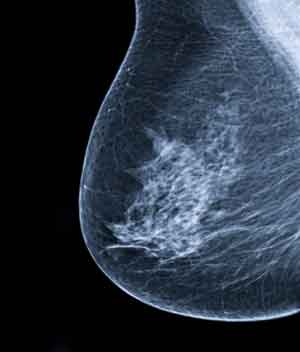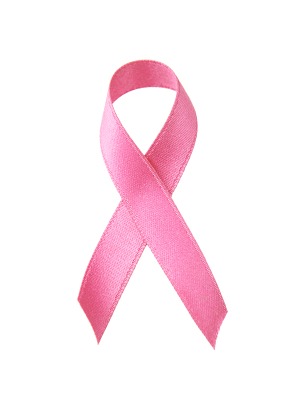What are Genes?
Genes, which are in each of our body cells, help guide the growth and development of our bodies. We are all born with two copies of each gene – one we inherit from our mother and the other one from our father. When functioning normally, certain genes actually help to prevent cancer.
The breast cancer susceptibility genes (BRCA) in breast and ovarian cancers.

What are the “breast cancer susceptibility genes”?
In rare cases, a family carries genes that have been altered or changed and do not work as well. This may lead to a higher chance, or susceptibility, for getting breast or ovarian cancer. These genes are called the breast cancer susceptibility genes (BRCA). Men in some of these families may have a chance of getting breast cancer too. You can inherit these changed genes from either your mother’s or father’s side of the family. So far, only two breast cancer susceptibility genes, BRCA1 and BRCA2, have been found. As research continues, new BRCA genes may be found in the future. While these changed genes result in an increased chance of getting breast or ovarian cancer, they do not cause cancer. Not everyone who inherits changed BRCA genes will develop breast or ovarian cancer.
If I have a family history of breast or ovarian cancer, does it mean that I may have changed BRCA genes?
Not necessarily. Most breast or ovarian cancer that occurs within families is not due to having inherited changed BRCA genes, but is instead caused by other factors. In fact, less than 10% of breast cancer is thought to be due by these changed BRCA genes.
How do I know if I might carry changed BRCA genes?
 Answer “yes” or “no” to the questions below. You may have a higher chance of carrying changed BRCA genes if you answer “yes” to one or more of the following:
Answer “yes” or “no” to the questions below. You may have a higher chance of carrying changed BRCA genes if you answer “yes” to one or more of the following:
- You have a close relative with a positive test for changed BRCA genes.
- You have had both breast and ovarian cancer.
- You have breast or ovarian cancer, and
- You have one or more close relatives with breast cancer (especially before age 50) and/or ovarian cancer.
- You have a strong family history of breast cancer (especially before age 50) and/or ovarian cancer in many relatives across two or more generations.
- You had breast cancer before you were 30.
- You are of Ashkenazi (Central or Eastern European) Jewish heritage and
- You have had either breast cancer before you were 40, or ovarian cancer.
- You have had breast cancer that appeared in both breasts or in many places in the same breast.
After answering “yes” to one of the preceding questions, I know I have a higher chance of carrying changed BRCA genes. What should I do?
First, talk with your provider about your concerns. After confirming your risk by looking at your family history and your personal health history, your provider may refer you toa genetic counselor. Genetic counseling is the first step in determining if changed BRCA genes are in your family, and the chance that you may have inherited these genes. During counseling, the genetic counselor will review your medical records, your health history, and your family history of cancer.
Is there a test to find out if I have changed BRCA genes?
If it seems like there may be an inherited susceptibility to cancer in your family, a blood test for the BRCA genes may be available. However, the test is not for everyone, but rather it is sometimes useful for individuals thought to be at high risk. The genetic counselor will go over the pros and cons of testing with you. With this information, you can decide, with your genetic counselor, whether this test is right for you.
If I don’t have a higher chance of carrying changed BRCA genes (I did not answer “yes” to any of the questions), should I go to genetic counseling and consider testing?
Not at this time. The only genetic test available is for women who are at very high risk. If your family history of breast cancer doesn’t fall into the high-risk pattern but continues to bother you, talk with your practitioner.
What can I do to take care of myself?
Since all women are at risk for breast cancer, screening to find breast cancer early when it is most treatable and curable is a very important step you can take for yourself.
There are 3 important screening steps you can take to find breast cancer in the early stages:
- Monthly breast self-exam
- Breast exams (done by your practitioner) in the medical office
- Regular mammograms. Mammography is strongly recommended for all women who are between the ages of 50-74. If you are age 40-49, talk with your health care practitioner about the age to begin having regular mammograms.
A healthy, low-fat diet, regular exercise, drinking alcohol in moderation, and not smoking are other very important ways of taking care of yourself that may reduce your chances of getting breast cancer.
Testing for Breast Cancer Susceptibility Genes
The decision about taking this blood test is a very personal one and can have complex and sometimes unexpected emotional effects. An important part of genetic counseling is to help you explore what testing might mean for you and your family. Here are some simple answers to common questions and concerns. The genetic counselor will discuss the pros and cons in more detail. Results of the test will remain confidential.
What are some of the benefits of BRCA testing?
Some people who get a negative test result are relieved. Some who test positive use the results to help plan their medical care or to make personal decisions about their lives. Although we are not certain, it is likely that starting to have mammograms and breast exams at a younger age and having them more often is generally recommended and may help find breast cancer early.
Although these are drastic measures, some women who test positive for BRCA decide to have surgery to remove their breasts or ovaries to prevent cancer. At this time, we do not know how effective these surgeries will be to prevent breast or ovarian cancer.
What are some of the drawbacks to BRCA testing?
Having a negative test may give some women a false sense of security, so they may not come in for regular mammograms and breast exams like they should. Testing positive can create stress in a woman’s life, especially if she has no clear plan of action to take.
What does it mean if the BRCA test is positive?
A positive BRCA test means that the person’s chance of getting breast cancer in her lifetime may be as high as 85%, but this means that there is still at least a 15% chance that she won’t get it. It also means that their risk of getting ovarian cancer goes up but is not as high as for breast cancer. We do not know yet why some people with changed genes get cancer, and others do not.
If I decide to have BRCA testing, how will I be told my test result?
Because it is a very complex test, it may take several months to get your test result back. Once the result is available, your genetic counselor will meet with you to talk about the results and to help you decide what to do next.